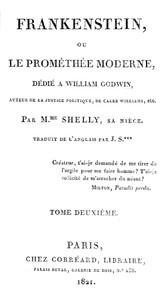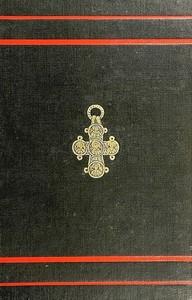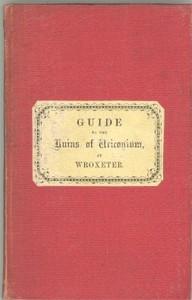Read this ebook for free! No credit card needed, absolutely nothing to pay.
Words: 4269 in 1 pages
This is an ebook sharing website. You can read the uploaded ebooks for free here. No credit cards needed, nothing to pay. If you want to own a digital copy of the ebook, or want to read offline with your favorite ebook-reader, then you can choose to buy and download the ebook.


: Frankenstein ou le Prométhée moderne Volume 2 (of 3) by Shelley Mary Wollstonecraft Saladin Jules Translator - Science fiction; Horror tales; Gothic fiction; Scientists Fiction; Monsters Fiction; Frankenstein Victor (Fictitious character) Fiction; Franke
Deplorable state of bee-keeping. New era anticipated, 13. Huber's discoveries and hives. Double hives for protection against extremes of temperature, 14. Necessary to obtain complete control of the combs. Taming bees. Hives with movable bars. Their results important, 15. Bee-keeping made profitable and certain. Movable frames for comb. Bees will work in glass hives exposed to the light. Dzierzon's discoveries, 16. Wagner's letter on the merits of Dzierzon's hive and the movable comb hive, 17. Superiority of movable comb hive, 19. Superiority of Dzierzon's over the old mode, 20. Success attending it, 22. Bee-Journal to be established. Two of them in Germany. Important facts connected with bees heretofore discredited, 23. Every thing seen in observing hives, 24.
BEES CAPABLE OF DOMESTICATION. Astonishment of persons at their tameness, 25. Bees intended for the comfort of man. Properties fitting them for domestication. Bees never attack when filled with honey, 26. Swarming bees fill their honey bags and are peaceable. Hiving of bees safe, 27. Bees cannot resist the temptation to fill themselves with sweets. Manageable by means of sugared water, 28. Special aversion to certain persons. Tobacco smoke to subdue bees should not be used. Motions about a hive should be slow and gentle, 29.
THE QUEEN BEE. THE DRONE. THE WORKER, 30. Knowledge of facts relating to them, necessary to rear them with profit. Difficult to reason with some bee-keepers. Queen bee the mother of the colony--described, 31. Importance of queen to the colony. Respect shown her by the other bees. Disturbance occasioned by her loss, 32. Bee-keepers cannot fail to be interested in the habits of bees, 33. Whoever is fond of his bees is fond of his home. Fertility of queen bees under-estimated. Fecundation of eggs of the queen bees, 34-36. Huber vindicated. Francis Burnens. Huber the prince of Apiarians, 35. Dr. Leidy's curious dissections, 37. Wasps and hornets fertilized like queen bees. Huish's inconsistency, 38. Retarded fecundation productive of drones only. Fertile workers produce only drones, 39. Dzierzon's opinions on this subject, 40. Wagner's theory. Singular fact in reference to a drone-rearing colony. Drone-laying queen on dissection, unimpregnated. Dzierzon's theory sustained, 41. Dead drone for queen, mistake of bees, 43. Eggs unfecundated produce drones. Fecundated produce workers; theory therefor, 44. Aphides but once impregnated for a series of generations. Knowledge necessary for success, Queen bee, process of laying, 45. Eggs described. Hatching, 46. Larva, its food, its nursing. Caps of breeding and honey cells different, 47. Nymph or pupa, working. Time of gestation. Cells contracted by cocoons sometimes become too small. Queen bee, her mode of development, 48. Drone's development. Development of young bees slow in cool weather or weak swarms. Temperature above 70 deg. for the production of young. Thin hives, their insufficiency. Brood combs, danger of exposure to low temperature, 49. Cocoons of drones and workers perfect. Cocoons of queens imperfect, the cause, 50. Number of eggs dependent on the weather, &c. Supernumerary eggs, how disposed of, 51. Queen bee, fertility diminishes after her third year. Dies in her fourth year, 52. Drones, description of. Their proper office. Destroyed by the bees. When first appear, 53. None in weak hives. Great number of them. Rapid increase of bees in tropical climates, 54. How to prevent their over production. Expelled from the hive, 55. If not expelled, hive should be examined. Provision to avoid "in and in breeding," 56. Close breeding enfeebles colonies. Working bees, account of. Number in a hive, 58. All females with imperfect ovaries. Fertile workers not tolerated where there are queens, 59. Honey receptacle. Pollen basket. The sting. Sting of bees, 60. Often lost in using. Penalty of its loss. Sting not lost by other insects. Labors of workers, 61. Age of bees, 62. Bees useful to the last, 63. Cocoons not removed by the bees. Breeding cells becoming too small are reconstructed. Old comb should be removed. Brood comb not to be changed every year, 64. Inventors of hives too often men of "one idea." Folly of large closets for bees, 65. Reason of limited colonies. Mother wasps and hornets only survive Winter. Queen, process of rearing, 66. Royal cells, 67. Royal Jelly, 68. Its effect on the larvae, 69. Swammerdam, 70. Queen departs when successors are provided for. Queens, artificial rearing, 71. Interesting experiment, 72. Objections against the Bible illustrated, 73. Huish against Huber, 74. His objections puerile. Objections to the Bible ditto, 75.
COMB. Wax, how made. Formed of any saccharine substance. Huber's experiments, 76. High temperature necessary to its composition, 77. Heat generated in forming. Twenty pounds of honey to form one of wax. Value of empty comb in the new hive. How to free comb from eggs of the moth, 78. Combs having bee-bread of great value. How to empty comb and replace it in the hive, 79. Artificial comb. Experiment with wax proposed, 80. Its results, if successful. Comb made chiefly in the night. 81. Honey and comb made simultaneously. Wax a non-conductor of heat. Some of the brood cells uniform in size, others vary, 82. Form of cells mathematically perfect, 83. Honey comb a demonstration of a "Great First Cause," 84.
PROPOLIS OR BEE GLUE. Whence it is obtained. Huber's experiment, 85. Its use. Comb varnished with it. The moth deposits her eggs in it, 85. Propolis difficult for bees to work. Curious use of it by bees, 87. Ingenuity of bees admirable, 88.
POLLEN OR BEE-BREAD. Whence obtained. Its use. Brood cannot be raised without it. Pollen nitrogenous. Its use discovered by Huber, 89. Its collection by bees indicates a healthy queen. Experiment showing the importance of bee-bread to a colony, 90. Not used in making comb. Bees prefer it fresh. Surplus in old hives to be used to supply its want to young hives. Pollen and honey both secured at the same time by bees. Mode of gathering pollen, 91. Packing down. Bees gather one kind of pollen at a time. They aid in the impregnation of plants. History of the bee plain proof of the wisdom of the Creator. Bees made for man, 92. Virgil's opinion of bees. Rye meal a substitute for pollen. Quantity used by each colony, 93. Wheat flour a substitute. The improved hive facilitates feeding bees with meal. The discovery of a substitute for pollen removes an obstacle to the cultivation of honey bees, 94.
Fifty-four Advantages which ought to be found in an improved hive, 95-110. Some desirable qualities the movable comb hive does not pretend to! Is the result of years of study and observation. It has been tested by experience, 111. Not claimed as a perfect hive. Old-fashioned bee-keepers found most profit, &c. Simplest form of hive, 112. Bee culture where it was fifty years ago. Best hives. New hive is submitted to the judgment of candid bee-keepers, 113.
PROTECTION AGAINST EXTREMES OF HEAT, COLD AND DAMPNESS. Many colonies destroyed by extremes of weather. Evils of thin hives. Bees not torpid in Winter. When frozen are killed, 114. Take exercise to keep warm. Perish if unable to preserve suitable degree of warmth. Are often starved in the midst of plenty. Eat an extra quantity of food in thin, cold hives, 115. Muscular exertion occasions waste of muscular fiber. Bees need less food when quiet than when excited. Experiment, wintering bees in a dry cellar, 116. Protection must generally be given in open air. None but diseased bees discharge faeces in the hive. Moisture, its injurious effects. Free air needful in cold weather, with the common hive, 117. Loss by their flying out in cold weather. Protection against extremes of weather of the very first importance. Honey, our country favorable to its production. Colonies in forests strong. Reasons for this, 118. Russian and Polish bee-keepers successful. Their mode of management, 119. Objection of want of air answered, 120. Bees need but little air in Winter if protected. Protection in reference to the construction of hives. Double hives, preferable to plank. Made warm in Winter by packing. Double hives, inside may be of glass, 121. Advantages of glass over wood, 122. Advantages of double glass. Disadvantages of double hives in Spring. Avoided by the improved hive, 123. Covered Apiaries exclude the sun in Spring. Reason for discarding them. Sun, its effect in producing early swarms in thin hives. Protected hives fall for want of sun. Enclosed Apiaries, nuisances. Thin hives ought to be given up, they are expensive in waste of honey and bees, 124. Comparative cheapness of new and old hives, 125. Protector against injurious weather. Proper location of bees. Preparations for setting hives, 126. Protector should be open in Summer and banked in Winter. Cheaper than an Apiary. Summer air of Protector like forest air. In Winter uniform and mild, 127. Bees will not be enticed out in improper weather. Secures their natural heat. Dead bees, &c., to be removed in Winter. Temperature of the Protector, 128. Importance of the Protector. Its economy in food, 129.
VENTILATION. Artificial ventilation produced by bees. Purity of air in the hive, 130. Bad air fatal to bees, eggs and larvae, 131. Bees when disturbed need much air. Dysentery, how produced. Post mortem condition of suffocated bees, 132. Great annoyance of excessive heat. Bees leave the hive to save the comb. Ventilating instinct wonderful, 133. Should shame man for his neglect of ventilation. Comparative expense of ventilation to man and bees, 134. Importance of ventilation to man. Its neglect induces disease, 135. Plants cannot thrive without free air. The union of warmth and ventilation in Winter an important question. House-builder and stove-maker combine against fresh air, 136. Run-away slave boxed up. Evil qualities of bad air aggravated by heat. Dwellings and public buildings generally deficient in ventilation. Degeneracy will ensue, 137. Women the greatest sufferers. Necessity of reform, 138. Public buildings should be required to have plenty of air. Improved hive, its adaptedness to secure ventilation, 139. Nutt's hive too complicated. Ventilation independent of the entrance, 140. Hive may be entirely closed without incommoding the bees. Ventilators should be easily removable to be cleansed. Ventilation from above injurious except when bees are to be moved, 141. Variable size of the entrance adapts it to all seasons. Ventilators should be closed in Spring. Downing on ventilation, 142.
ARTIFICIAL SWARMING. Numerous efforts to dispense with natural swarming. Difficulties of natural swarming. First, many swarms are lost, 173. Second, time and labor required. Sabbath labor, 174. Perplexities to farmers. Third, large Apiaries cannot be established, 175. Fourth, uncertainty of swarming. Disappointments from this source, 176. Efforts to devise a surer method, 178. Columellas's mode of obtaining swarms. Hyginus. Small success which attended, those efforts, Schirach's discovery, 179. Huber's directions. Not adapted to general use. Dividing hives in this country unsuitable. Bees without mature queens make no preparation to rear workers, 180. Dividing hives to multiply colonies will not answer, 181. Huber's hive even, inadequate. Common dividing hives unsuccessful. Multiplying by brood comb in an empty hive, vain, 182. Multiplying by removal and substitution useless. Mortality of bees in working season, 183. Connecting apartments a failure, 184. Many prefer non-swarming hives, 185. Profitable in honey but calculated to exterminate the insect. Improved hive good non-swarmer, if desired. Disadvantages of non-swarming. Queen bee becomes infertile. Remedied by the use of the improved hive, 186. Practicable mode of artificial swarming, 187. Bees will welcome to their hives strange bees that come loaded. Will destroy such as come empty, 188. Forced swarming requires knowledge of the economy of the bee-hive. Common hives give no facility for learning the bee's habits. Equalizing a divided swarm, 190. Bees in parent hive, if removed, to be confined and watered, 191. Bees removed will return to their old place. Supplying bees with water by a straw. Water necessary to prepare food for the larvae, 192. New forced swarms to be returned to the place of the old one, or removed to a distance. Treatment to wont them to new place in the Apiary, 193. Bees forget their new locations. Objection to forced swarming in common hives, 194. Forced swarming by the new hives removes the objection. Mode of forcing swarms by the new hives, 195. Queen to be searched for. Important that she should be in the right hive, 196. Convenience of forced swarming in supplying extra queens. Mode of supplying them. Should be done by day light and in pleasant weather, 197. Honey-water not to be used. Safety to the operator. Forced swarming may be performed at mid-day. Advantages of the shape of the new hive, 198. Huber's observation on the effect of sudden light in the hive. True solution of the phenomenon. Bees at the top of the hive, less belligerent than those at the bottom, 199. Sudden jars to be avoided. Removal of honey-board. Sprinkling with sugar-water, 200. Loosening the frames. Removing the comb. Bees will adhere to their comb, 201. Natural swarming imitated. How to catch the queen. Frames protected from cold and robbery by bees. Frames returned to the hive. Honey-cover, how managed. Motions of bee-keeper to be gentle. Bees must not be breathed on. Success in the operation certain, 202. New colonies may be thus formed in ten minutes. Natural swarming wholly prevented. If attempted by the bees cannot succeed. How to remove the wings of the queens, 203. Precaution against loss of queen by old age. Advantages of this, 204. Certainty and ease of artificial swarming with the new hive. After-swarms prevented if desired, 205. Large harvests of honey and after-swarming impracticable. Danger of too rapid increase of stocks. Importance of understanding his object, by the bee-keeper, 206. The matter made plain, 207. Apiarians dissuaded from more than tripling their stocks in a year. Tenfold increase of stocks attainable, 209. Certain increase, not rapid, most needed. Cautions concerning experiments, 210. Honey, largest yield obtained by doubling colonies. The process, 211. May be done at swarming time. Bees recognize each other by smell, 213. Importance of following these directions illustrated. Process of uniting swarms simplified by the new hive, 214. Very rapid increase of colonies precarious. Mode of effecting the most rapid increase, 215. Nucleus system, 217. Can a queen be raised from any egg? Two sorts of workers, wax workers and nurses, 218. Probable explication of a difficulty, 219. Experimenting difficult work. Swarming season best time for artificial swarming. Amusing perplexity of bees on finding their hive changed, 220. Perseverance of bees. Interesting incident illustrating it, 221. Novel and successful mode of forming nuclei, 223. Mode of managing nuclei, 225. Danger of over-feeding. Increasing stocks by doubling hives, 229. Important rule for multiplying stocks. How to direct the strength of a colony to the rearing of young bees, 230. Proper dimensions of hives. Reasons therefor, 231. Easy construction of the improved hive. Precaution of queen bees in their combats, 234. Reluctance of bees to receive a new queen. Expedient to overcome this. Queen nursery, 235. Mode of rearing numerous queens, 237. Control of the comb the soul of good bee-culture. Objection against bee-keeping answered, 233. No "royal road" to bee-keeping. A prediction, 239.
LOSS OF THE QUEEN. Queen often lost. Queens of strong hives seldom perish without providing for successors. Their death commonly occurs under favorable circumstances, 273. Young queen sometimes matured before the death of the old one. Superannuated queens incapable of laying worker eggs. Case of precocious superannuation, 274. Signs that there is no queen in a hive. Signs of queenless hives, 275. Exhortation to wives, 276. Difficult in common hives, to decide on the condition of the stock. Always easy with the movable comb hive, 277. Bees sometimes refuse to accept of aid in their queenless state. Parallel in human conduct. Young bees in such hives will at once provide for a queen. An appeal to the young, 278. Hives should be examined early in Spring. Destitute stocks should be united to others having queens. Reasons therefor. General treatment in early Spring, 279. Hives should be cleansed in Spring. Durability and cheapness of hives, 280. Undue regard to mere cheapness. Various causes destructive of queens, 281. Agitation of the bees on missing their queen, 282. Treatment of swarms that have lost their queens, 283. Examination of the hive needful, 284. Examination and treatment in the Fall. Persons who cannot attend to their bees themselves, may safely entrust their care to others, 285. Business of the Apiarian united with that of the gardner. Experiments with queen bees, 286.
UNION OF STOCKS. TRANSFERRING BEES. STARTING AN APIARY. Queenless colonies should be broken up, Spring and Fall. Small colonies should be united. Animal heat necessary in a hive. Small swarms in Winter consume much honey, 287. Colonies to be united, should stand side by side. How to effect this. Removal of an Apiary in the working season, 288. To secure the largest quantity of honey from a given number of stocks, 289. Non-swarming plan. Moderate increase best, 290. Transferring bees from common, to the movable comb hive, 291. Successful experiment. Should not be attempted in cold weather. The process of transfer, 292. Best time. May be done at any season when the weather is warm, 294. Precaution against robbing, 295. Combs should be transferred with the bees, 296. Caution on trying new hives, 297. Thrifty old swarms. Conditions of their thrift, 298. Procuring bees to start an Apiary. New early swarms best. Signs to guide the inexperienced buyer, 299. Directions for removing old colonies. For removing new swarms, 300. To procure honey the first season. Novices should begin in a small way. Neglected Apiary, 303. Superstitions about bees. Cautions to the inexperienced, against transferring, renewed. Parallel between bees and covetous men, 304.
Free books android app tbrJar TBR JAR Read Free books online gutenberg
More posts by @FreeBooks

: Sketches in Holland and Scandinavia by Hare Augustus J C Augustus John Cuthbert - Scandinavia Description and travel; Netherlands Description and travel


: Galileo and His Judges by Wegg Prosser F R Francis Richard - Astronomers Italy Biography; Galilei Galileo 1564-1642 Trials litigation etc.; Astronomy Italy History 16th century






